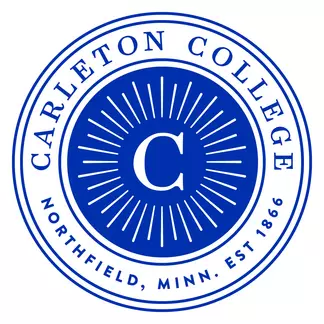
Developing Inquiry Skills
Student Faculty Research
Using a combination of endowed funds and support from HHMI, Carleton funds sixty to seventy students per year to work with faculty on and off campus on research in all STEM disciplines.
- The Towsley fund provides research support for students working with Carleton science and math faculty during the summer or over winter break.
- The Kolenkow-Reitz fellowship provides research support for Carleton students working with non-Carleton science and math faculty at another institution during the summer or over winter break.
- Summer Science Fellows. A cohort research program that draws from students enrolled in the
FOCUS program as well as students who contribute to diversification of STEM practitioners in multiple ways.
In cooperation with SERC, we use a modified version of David Lopatto's SURE III survey to assess student outcomes and to help improve our program.
Course-Based Research
Course-based research is a long tradition in some departments at Carleton (e.g. geology). With the support of HHMI funding, an informal group of about eleven faculty and staff from six science departments have met regularly since 2014 to discuss the advantages and challenges of integrating research experiences into courses. In an effort to grow the conversation on campus, an HHMI-funded workshop on course-based research was offered December, 2015. The goals of the workshop included learning about various national models and to construct an assessment tool that can be used college wide.
Introductory courses with explicit emphasis on problem-solving
Several introductory science and math courses include problem-solving sections that are offered in addition to regular class time or in place of some lab time. Faculty facilitate and coach students who are working actively on problems individually and in teams. These courses with problem-solving components are designed to level the playing field for students regardless of previous science background.
BIOLOGY 125. Genes, Evolution, and Development: A Problem-Solving Approach This offering of Biology 125 offers a problem-solving approach and covers the same concepts as the winter version of Biology 125. The course format allows time in class to apply new concepts by working through case study-type problems with faculty present. Students enter Carleton from a wide variety of academic experiences, and this offering of Biology 125 is designed to provide a level playing field for students regardless of previous science background. In addition, the active learning component of the course is beneficial for students who like to learn by doing. Students who complete this course are well-prepared to continue on to Biology 126.
CHEMISTRY 123. Principles of Chemistry An introduction to chemistry for students who have taken high school chemistry or Chemistry 122. Topics include the electronic structure of atoms, periodicity, molecular geometry, thermodynamics, bonding, equilibrium, reaction kinetics, and acids and bases. Substantial independent project work is included in the lab. Each offering will also focus on a special topic(s) selected by the instructor. When scheduling permits, we also offer a section of Chemistry 123 with problem-solving. This smaller section will have additional class meetings for problem-solving and review and is appropriate for students who have had a high school chemistry course but want to ease into the study of college-level chemistry.
MATHEMATICS 101. Calculus with Problem Solving An introduction to the central ideas of calculus with review and practice of those skills needed for the continued study of calculus. Problem-solving strategies will be emphasized. (Meets Monday through Friday).